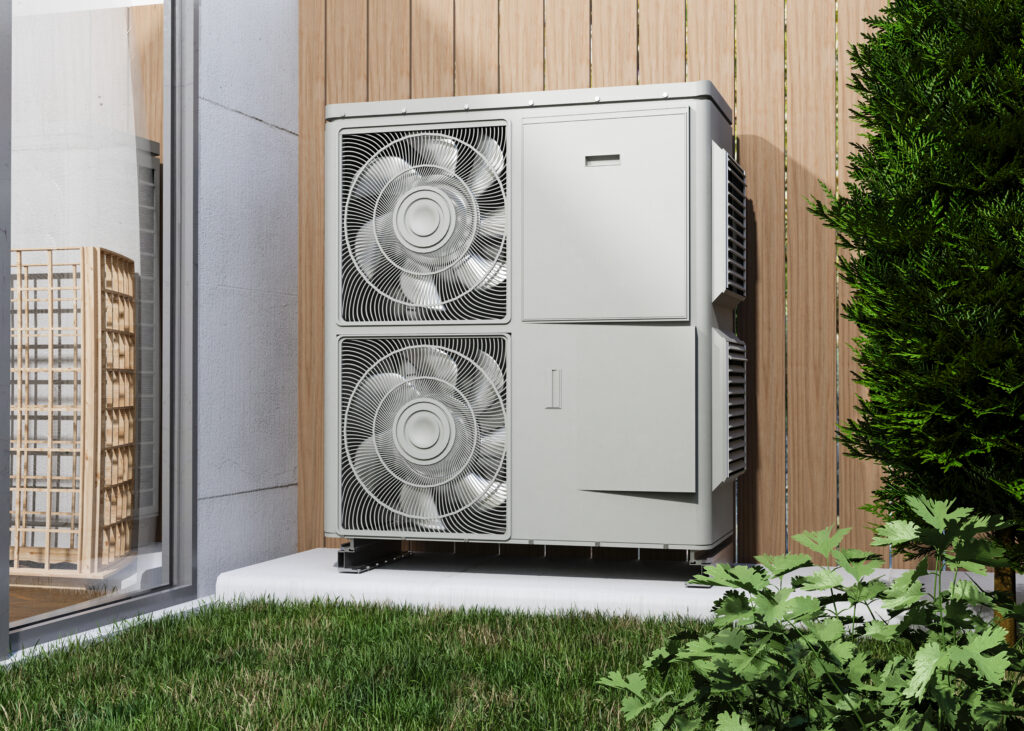While spring offers pleasant temperatures and abundant sunshine, it can be a challenging season for those with seasonal allergies. This is because plants, trees, and grasses release pollen during spring to aid in fertilization. This pollen can also infiltrate HVAC systems, potentially causing damage to their internal components.
Can Spring Pollen Damage Your HVAC?
Pollen can affect your HVAC system in several ways, potentially leading to reduced efficiency, increased maintenance needs, and even premature system failure if not addressed through regular maintenance.
Here are some common ways pollen can impact your HVAC system:
Clogged Air Filters
Pollen can easily become trapped in the air filters of your HVAC system. Over time, as these particles accumulate, they can clog the filters, reducing airflow and forcing the system to work harder and longer to circulate conditioned air. An overworked system is not only inefficient, but it can also overheat and fail prematurely.
Coil Issues
Pollen can accumulate on the condenser coils of your HVAC system. A pollen buildup can insulate the coils and affect their ability to release heat, reducing the efficiency of your air conditioner.
Increased Wear and Tear
When the filters of your HVAC are clogged with pollen, it is forced to work harder to push air through. This added strain can lead to more wear and tear on its components, such as the blower motor and fan, potentially shortening the lifespan of the system and leading to more frequent repairs. As a result, you may end up spending more on AC repair Rohnert Park or you might find yourself needing to replace your system sooner than you expected.
Drainage Issues
If your HVAC’s drainage system becomes clogged with pollen and other debris, water can back up and potentially damage the system or water damage could occur to your property.
Ductwork Contamination
Open windows and leaks in ductwork can allow pollen to enter your HVAC system. Pollen eventually settles in the ducts, clogging them. A build-up of debris within the ductwork can affect HVAC energy efficiency, leading to airflow problems.
Signs of Pollen Damage to HVAC Systems
Here are some common signs that pollen has entered your HVAC and is affecting its efficiency.
Reduced Airflow
If you notice that the airflow from your vents is weaker than usual, pollen may have accumulated in the filters or ducts. Poor airflow is a common cause of overheating. Before the problem worsens, have a professional carry out AC repair in Rohnert Park.
Allergy Symptoms
If you or someone else in your household experiences allergy symptoms indoors frequently, there is a possibility that pollen has got into your HVAC and is being circulated throughout your home by the system.
Unusual Noises
Unusual or weird rattling or buzzing noises coming from your system could be a sign that pollen particles have accumulated in your HVAC ducts. These noises usually occur when the system is strained or one or more of its components are partially clogged.
Frequent Filter Changes
When pollen accumulates in your HVAC, your filters can become clogged more quickly than usual, necessitating more frequent changes.
Dirty Coils and Components
Pollen can accumulate on your condenser coils and other HVAC components, affecting the system’s efficiency. If you notice a drop in your HVAC’s performance or a sudden spike in your electricity bill, have a professional inspect your system. A comprehensive inspection can help identify the root cause of HVAC performance issues.
Steps to Take if Your HVAC has been Damaged by Pollen
Here are some things to do if you notice signs that your HVAC has been damaged by pollen.
Inspect and Replace Filters
Pollen can clog HVAC filters, affecting system efficiency and potentially causing airflow problems. Check your HVAC filters and replace them with HEPA filters if they are clogged or dirty.
Clean the System
Clean the external parts of your HVAC unit, especially around the vents and intake areas. Using a garden hose, gently wash away pollen and debris. For indoor parts, such as vents and ducts, use a vacuum with a HEPA filter to remove pollen.
Schedule Professional Maintenance
If your system seems severely affected, consult a professional. A certified HVAC technician can conduct a comprehensive inspection, address any necessary AC repairs in Rohnert Park, and meticulously clean sensitive internal components such as coils and motors, which demand careful handling.
Seal and Insulate Ducts
Check your ductwork for leaks or holes. Seal and insulate your ducts to prevent pollen and other contaminants from entering your HVAC in the future. Sealed and insulated ducts can also help improve air quality and system efficiency.
Tips to Prevent Pollen From Entering Your HVAC
Here are some simple, yet effective ways to keep pollen out of your HVAC.
Use High-Quality Air Filters
Opt for high-efficiency particulate air or HEPA filters or those with a high Minimum Efficiency Reporting Value or MERV rating, ideally between 8 and 13.
Regularly Replace HVAC Filters
Consider replacing your filters more frequently than usual during pollen season, especially if your house is surrounded by several trees or plants.
Keep the Outdoor Unit Clean
Keep the area around your condenser unit clear of leaves, grass, and debris, or it may pull in pollen-laden air and distribute it throughout your home.
Stay on top of Professional HVAC Maintenance
Have your HVAC contractor inspect and maintain your HVAC at regular intervals. During a maintenance session, a professional tests HVAC components to ensure they’re working properly.
Temperature Solutions is committed to helping homeowners get the most out of their HVAC systems. Our experienced technicians focus on the root causes of HVAC problems, instead of their symptoms. To learn more, call (707) 326-0424.

